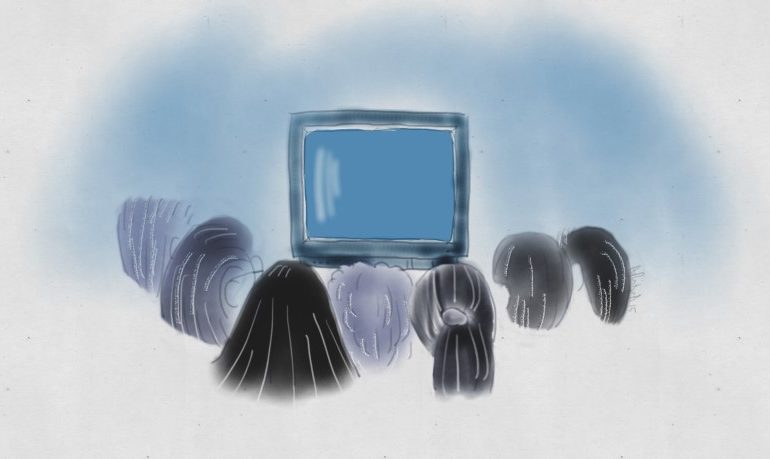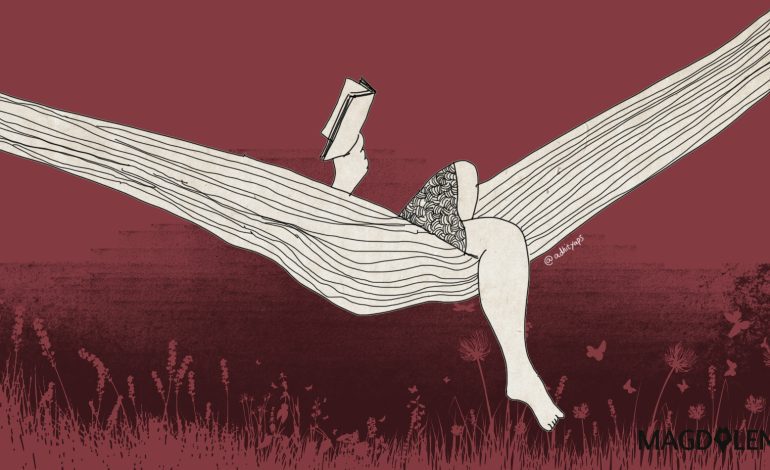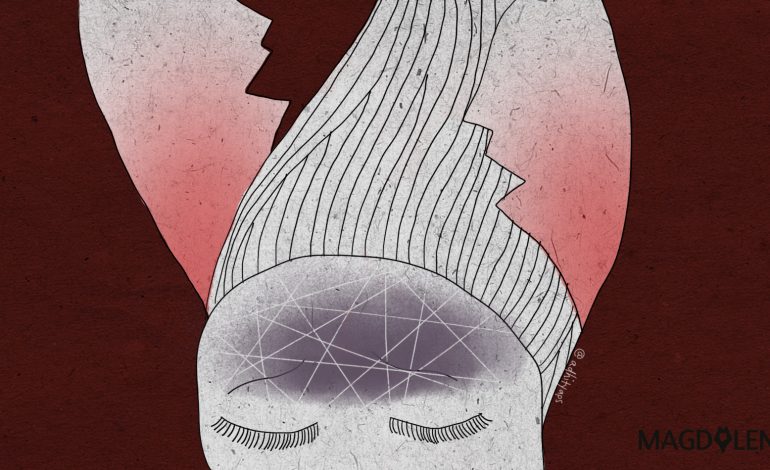We Need to Talk About the Toxic Culture of Sinetron

I was eating at a Sederhana restaurant somewhere in Bogor with my parents, when my attention drifted to a flatscreen TV on the wall that was airing a rerun of a sinetron (Indonesian soap opera) on RCTI. I wasn’t sure of the title of the show, I’m not that familiar with sinetron in general. But watching a few minutes of it has gotten me thinking about the problem that is sinetron.
Sinetron is a portmanteau for sinema elektronik (electronic cinema), but it’s been thrown around as a genre as opposed to a format. I sound like a standard prick by talking bad about this particular vein of television programming, because at its core, it isn’t meant to be intellectualized in the first place.
In the scene I happened to be paying attention to, the lead male character was bowing his head in shame, surrounded by his angry family members after they had found out he had a relationship with a girl outside of their class status. (I vaguely remember something about him getting her pregnant outside of marriage as well, but I might have not been paying attention at that point.)
The camera was placed at a corner behind a potted plant, at an angle where you could see most of the coffee table in the living room, but not the actors staged on and behind the couch. The blocking was a funny thing: the Mother, Lead Male, and Father characters were sitting side by side on the same couch, not making eye contact with one another, while the Elder Brother stood behind the couch. It was static.
Their dialogue, which was very cheesy and poorly written, was loud and boisterous. Things were spoken, but none actually said. They raised their voices but remained in their seats until someone finally decided to talk the loudest. Most of the time they didn’t really have much to say.
Conventions in storytelling for this particular programming would usually be composed of:
a) an everyday setting: a high school, a family, a small community;
b) conflict: a love triangle, familial financial troubles, ghosts, werewolves (you know what I’m talking about); and,
c) Melodrama.
They are this medium’s life force, involving tropes like a heterosexual romance, crying during prayer, hospital scenes, or a car accident where the main character has a 10-second window to cross the street safely from an oncoming traffic, but decides to dramatically acknowledge a car’s presence by body slamming into it.
The biggest issue I had with the above scene, however, lies in a little detail the writers of producers had used simply for dramatic and entertainment value. The Father reacted the most poorly to the news and raised his hand to strike his son. This is abuse. This content, broadcasted across millions of screens around the country, normalizes domestic abuse to be the response when “bad news” is received. It’s not just this show, either. I can recall many, many sinetrons from when I was younger that involved a stepmother hitting or throwing hot water on her housemaid or her stepdaughter (sometimes, both were one and the same).
Unfortunately, this may just be another convention. Verbal and physical abuse in family dynamics, sexism and classism are just a few of the issues deeply rooted in this genre. As a media student, I learned that there are plenty of ethical considerations in content creation and distribution, and things like this makes me wonder whether or not there is an ethical backbone presents in our local industries.
Poor representation of women is also an issue. Why are the only women in these programs are the evil, hedonistic stepmother and her sweet, innocent, naive stepdaughter that she abuses for being pretty? Or the man-stealing, spoilt, but popular bad girl who is too far from her faith to save? Or the docile hijabi torn between her love and familial duties? Or the housemaid from the village that loses everything she has to a rich family?
The reach that sinetron has in the landscape of our television industry is vast. A Nielsen survey in 2013 showed that 94 percent of Indonesians would prefer to watch television over any other media outlet, and that at 24 percent, the largest share, is held by the sinetron. This is serious influence. This kind of power has the means to make real change. Instead, our industry has been spending time, effort and money for longevity and entertainment value. I get it – people need to eat. And, hell, not all of the content in this genre is like this. But we need to do something about the ones that are.
It’s a question of my own moral standpoint, when I talk about how toxic normalizing abuse, classism, and sexism is in our media, especially mainstream media, particularly in mainstream Indonesian media. I don’t want a section of our community exposed to this idea that this is how you treat your family, this is how you treat your women, or this is how you should be as a woman – even if it is just fiction! I don’t want it to be a staple, that you need these things to be entertained, or that entertainment has to be like these to be commercially successful. Yes, content can be entertaining, but why does it have to be at the expense of our culture?
We need to start opening up a dialogue to this problem, and not turn the other cheek and let it slide. I know that will be a difficult road to make any big changes, but small steps like talking about it will get us to where we need to be. This industry, regardless of location, definitely will never stop running out of issues. That doesn’t mean we should give up trying to solve them.
Ariane Anantaputri is an aspiring musician and first-year Film and Television major studying to be a screenwriter and actress. She has recently packed up her entire life to London, England and misses dearly the convenience of Go-Jek as a mode of transportation.






















